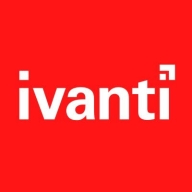

Microsoft Intune and Ivanti Endpoint Manager compete in endpoint management. Microsoft Intune appears to have the upper hand due to its integration with the Microsoft ecosystem, while Ivanti offers more versatility in application deployment.
Features: Microsoft Intune integrates seamlessly with Office 365 and Azure for a unified device management experience. It provides mobile device management and mobile application management capabilities. Its conditional access feature allows for secure device use. Ivanti Endpoint Manager excels in application deployment and provides detailed reporting, allowing management of various devices with ease. It offers strong remote management and efficient patch deployment tools.
Room for Improvement: Microsoft Intune could benefit from improved reporting, better Linux support, and enhanced security features. Ivanti Endpoint Manager's user interface is outdated, and can be complex to use. Both solutions need improvement in user experience and integration with modern services.
Ease of Deployment and Customer Service: Microsoft Intune operates on the public cloud, making it more scalable but potentially complex to deploy. It offers support that varies with the service agreement level. Ivanti Endpoint Manager, often on-premises, allows controlled environments but has complex initial deployment. Its customer service is generally responsive but can have delays.
Pricing and ROI: Microsoft Intune offers cost-effective solutions, especially when bundled with other Microsoft products. Ivanti Endpoint Manager had flat fee pricing but shifted to SaaS, causing increased costs without equivalent capability enhancements. While both provide strong ROI, Intune offers straightforward pricing benefits within Microsoft's framework.
Everything we've gained from it makes my job easier day after day, and I see value in it as an engineer.
Microsoft Intune not only saves costs by reducing the number of personnel needed but also offers a comprehensive solution for managing laptops, applications, security, individual access, and enrollment.
Importantly, when someone leaves the company, it helps protect document access on their devices.
It's always better to jump on a call and share screen, which they are willing to do rather than just going through a list of troubleshooting steps.
Their technical support is generally good in terms of quality and speed.
They provided detailed information that helped me convince the security team to approve the necessary port openings.
When a support ticket is submitted, it directly reaches someone with Intune support expertise.
When I contacted Microsoft, they had the same expertise, if not more, which is phenomenal because I felt heard and my problem was solved.
Sometimes, the support provided is excellent, and the representative is knowledgeable, while other times, the service needs improvement.
I rate the scalability of Ivanti Endpoint Manager around seven to eight because it offers options to manage the devices effectively, requiring only the addition of licenses.
Ivanti Endpoint Manager is indeed scalable.
The scalability of Microsoft Intune is ten out of ten.
Ideally, we want to automatically segregate devices based on user properties like primary use, but currently, dynamic groups seem limited to device properties.
It supports organizations with 200 endpoints and those with more than 15,000 endpoints.
Regarding stability and reliability, I have never seen the server go down or any functionality taken offline.
Due to the large number of devices in our environment, when we load the console for the first time, it takes a while to update the database.
For stability, once you get the system up and running, it's consistently stable without any lagging, crashing, or downtime.
We have not experienced downtime, bugs, or glitches.
It appears Microsoft Intune undergoes changes without informing customers.
Microsoft Intune has been very stable.
It lacks features like easy connection to remote computers and has a complicated software deployment process.
I would suggest improvements in the console interface of the Ivanti Endpoint Manager as it appears outdated, reminiscent of the early 2000s.
When we offboard a user, sending the wipe command or lock command is slightly slower than Workspace ONE.
Features like unlocking devices sometimes fail, and the support offered for other operating systems is insufficient.
There are communication issues, so you might start working with a feature without knowing if it will be deprecated six months from now.
Many third-party companies offer single-pane-of-glass reporting that shows you what your update environment looks like, how your patch is doing, application status, etc., but Intune's reporting is not intuitive.
The transition to a Software-as-a-Service model led to significant price increases without corresponding enhancements in the platform.
Ivanti Endpoint Manager charges a flat fee for the implementation and product purchase, followed by yearly maintenance
Introductory professional services, like a fast-track service, were included with our E5 membership, and there have been no additional costs.
The Intune suite and add-ons, such as batch management and remote help, are costly.
It costs approximately forty euros per user per month.
It provided essential features needed for our operations, including endpoint management and remote control.
From the features perspective, distribution packages is the best feature in the Ivanti Endpoint Manager.
The most valuable feature of the Ivanti Endpoint Manager is the Windows update patching.
Intune excels in configuration and compliance management for Windows 10, ensuring devices receive timely updates and adhere to organizational standards.
Dynamic groups allow us to set conditions for automatic membership, eliminating the need for user intervention or manual review and ensuring a seamless workflow.
Windows Autopatch is the most valuable because it removes the burden of patch management.
| Product | Market Share (%) |
|---|---|
| Microsoft Intune | 31.0% |
| Ivanti Endpoint Manager | 2.6% |
| Other | 66.4% |


| Company Size | Count |
|---|---|
| Small Business | 3 |
| Midsize Enterprise | 2 |
| Large Enterprise | 6 |
| Company Size | Count |
|---|---|
| Small Business | 116 |
| Midsize Enterprise | 46 |
| Large Enterprise | 152 |
Ivanti's All-in-One Endpoint Management solution offers a seamless and comprehensive approach to managing user profiles and all client devices, spanning Windows, macOS, Linux, Chrome OS, and even IoT. With Day Zero support, you can ensure uninterrupted device management. Ivanti provides two key solutions to enhance your organizational operations: Modern Device Management through Ivanti Neurons for UEM, offering a unified view to efficiently manage and secure all devices, and Digital Employee Experience with Ivanti Neurons for Digital Experience, proactively improving productivity, security, and employee retention. This platform also facilitates OS provisioning, software distribution, Mac management, and efficient remote control, reducing resource allocation and enhancing user profile management, all complemented by intuitive dashboards and reporting capabilities. Elevate your endpoint management with Ivanti's comprehensive solution.
Microsoft Intune provides centralized management of mobile devices and applications, ensuring security, compliance, and productivity through integration with Microsoft services like Microsoft 365 and Azure Active Directory.
Organizations use Intune for managing mobile devices and applications, enhancing security and compliance across platforms. With features like single sign-on, conditional access, and zero-touch deployment via Autopilot, it facilitates efficient operations. Intune's scalability, easy enrollment, and capabilities such as remote wipe support diverse device management, offering robust data protection and efficient operation. Despite its features, improvement areas include reporting, compatibility with non-Microsoft devices, and better support for macOS and Linux devices.
What are the key features of Microsoft Intune?
What benefits should users look for in reviews?
In industries such as finance, healthcare, and education, Microsoft Intune is implemented to ensure secure and compliant device management. Companies leverage its capabilities to deploy security policies and manage both corporate-owned and BYOD environments, facilitating a unified approach to data protection and compliance.
We monitor all Unified Endpoint Management (UEM) reviews to prevent fraudulent reviews and keep review quality high. We do not post reviews by company employees or direct competitors. We validate each review for authenticity via cross-reference with LinkedIn, and personal follow-up with the reviewer when necessary.